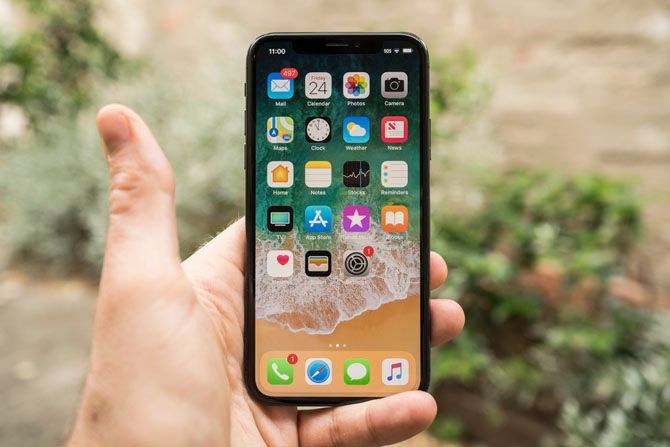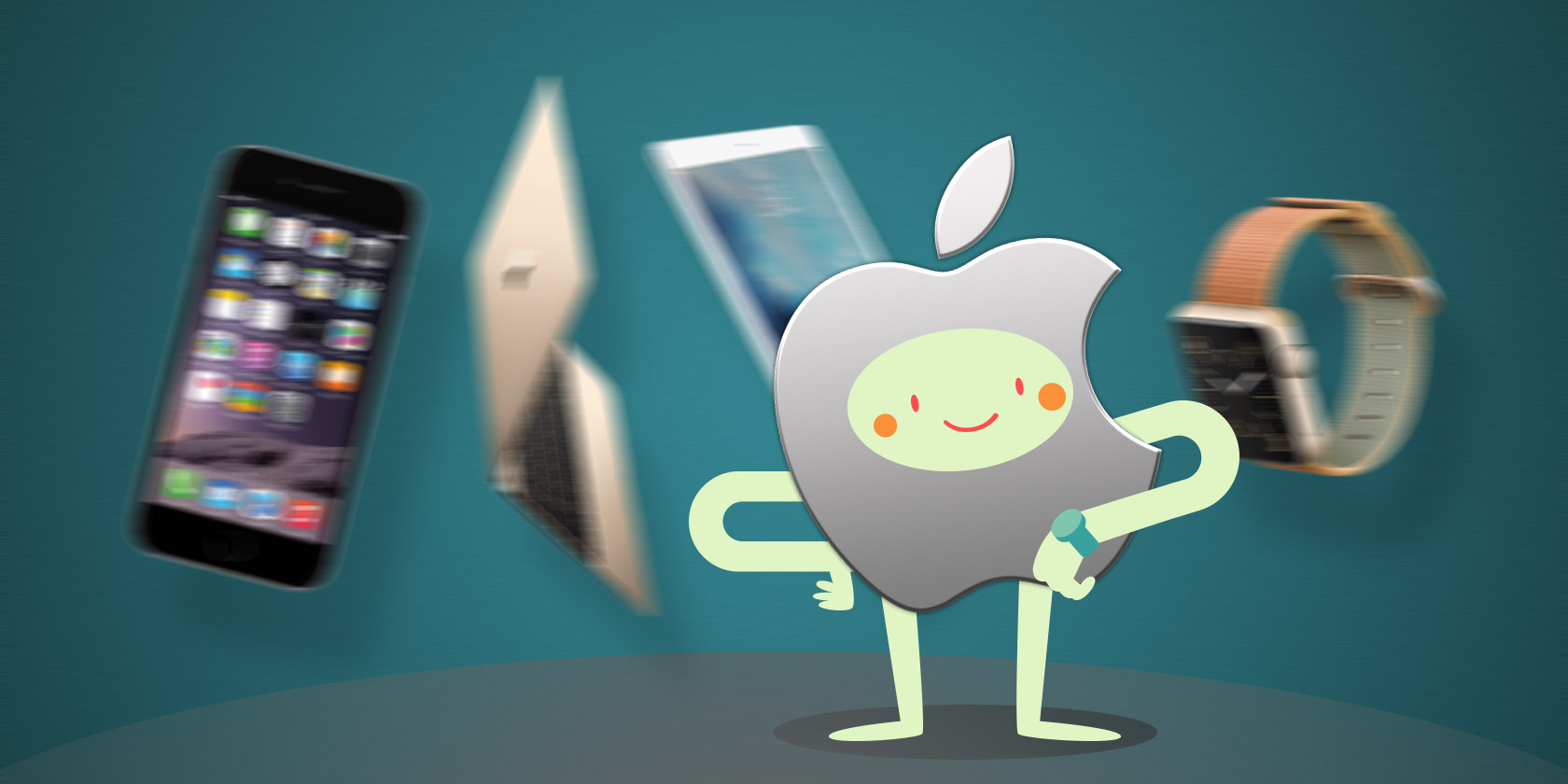
Because technology advances so quickly, a product you buy today could be superseded by its next iteration in a month. Knowing this, is there a “best time” to buy an iPhone, iPad, or Mac to get the biggest bang for your buck?
Let’s examine Apple’s historical release schedules and try to figure out when the right time to buy new Apple hardware is.
If You Can’t Wait

Before we dive into specifics, we should set a baseline expectation first: the right time to buy any tech product is when you need it.
Say the Mac you use every day suddenly stops working. At that point, you probably don’t care about Apple’s computer release schedule. It would be pretty silly to wait months for a new computer just so you can get the shiniest new model when the current offering works just fine.
The same goes for if you’re, say, starting college and don’t have a computer. It’s a good idea to buy whatever is on the market at that time, as you need a computer and fast.
However, if you really want to wait, you might have other options. For instance, you could buy a cheap Chromebook to fulfill your computing needs in the interim. Should you break your iPhone, you might have a spare old device you can use in a pinch.
If you’re not under this pressure, you have more flexibility to wait. By the way, if you often break your device, you might consider AppleCare so you can get it fixed after accidental damage.
Consult the MacRumors Buyer’s Guide
Any time you’re thinking of buying an Apple device, you should consult the MacRumors Buyer’s Guide first. This resource collects information on the average number of days that pass between each Apple hardware release. It then tells you how many days it’s been since the latest device in each category came out, so you can know if now is a smart time to buy.

You’ll see several colored lights on the page:
- Green means now is a good time to buy that product, as it was recently released.
- Gray is neutral and indicates that a product is in the middle of its life cycle. It’s not necessarily a bad buy, but may be worth waiting if you can help it.
- Yellow indicates that a product is approaching the end of its sale cycle. If you can wait, you probably should.
- Red means you should avoid buying the device. It likely has a replacement imminently on the horizon, or has been discontinued.
Using the Buyer’s Guide Wisely
Of course, you don’t have to take these recommendations as law. They’re definitely a useful tool so you get the most for your money, but they don’t take your personal circumstances into account.
For example, the Buyer’s Guide recommends avoiding the 12″ MacBook as Apple discontinued it in July 2019. This means if you want to buy a brand-new device, your money is better spent elsewhere. But if that model of MacBook does everything you need and you find a great deal on a used one, it might still end up serving you well.
Apple has a tendency to let some devices sit dormant if they’re not particularly popular. While you can pretty much guarantee a new iPhone every year, other units, like the Mac Pro, go years without a hardware refresh. Thus, the guide is at its most useful when it recommends buying something.
The Best Time to Buy a New iPhone

Wondering when to buy a new iPhone? This is the easiest piece of Apple’s lineup to determine. For many years, Apple has released the latest iPhone in September/October.
When the newest iPhone comes out, it typically launches at the same price point as the prior year’s model (though it’s sometimes cheaper). For instance, the iPhone XS started at $ 999 when it launched in 2018. Its successor, the iPhone 11 Pro, was the same price at launch in 2019.
That means your $ 999 will get you a better phone in late September than it will in August. You’ll not only get a device with a better camera and performance, but it will receive iOS updates for a longer time.
If you always want to have the newest iPhone, you should consider Apple’s iPhone Upgrade Program. This allows you to pay a set cost every month that includes the latest iPhone and AppleCare+ coverage. When the new device comes out, you upgrade to it at no additional cost, as long as you’ve made 12 payments on your current device.

This has obvious benefits, though there are some drawbacks too. You can’t keep your old device as a backup or to trade in/sell. Plus, the monthly payment never ends.
Of course, if you don’t care about the latest and greatest, you can take advantage of new releases to get a deal on an older (and perfectly functional) device. If Apple doesn’t offer the past model you’re interested in, you can still get older devices at a discount from other sellers, like your carrier or Best Buy.
We’ve compared buying an iPhone from Apple and your carrier for more info on this.
The Best Time to Buy a New Mac

The Macs release cycle isn’t as clear-cut as the iPhone. Generally, you can expect new Mac models to launch in the middle of the year, sometime between April and October.
Mac computers don’t often seen major changes with new releases. Aside from small advancements, like the Force Touch trackpad introduced in 2015 and the Touch Bar on higher-end MacBook Pro models from 2016 onward, the changes are mostly internal. Generally, a year’s difference usually includes a more powerful CPU, a speedier SSD and RAM, and slightly better battery life.
Occasionally, Macs do see a huge refresh. Every release of the MacBook Air was quite similar from 2010 onward until Apple released a redesigned Air in late 2018. Apple also unveiled a revamped entry-level 12″ MacBook in 2015, though the company discontinued this in 2019.
Even if you don’t want a brand-new Mac, keep an eye out during the middle months of the year. When a new model comes out, you can usually score an older version at a discount. Check out Apple’s refurbished Mac page often. Plus, our tips on how to save money when buying a MacBook will help at any time of year.
The Best Time to Buy a New iPad

Apple’s tablet lineup is the hardest to predict, mainly because the company jumps between releases for several different models.
There’s the entry-level iPad line, plus the iPad Pro in a few sizes. Apple also released a new third-generation iPad Air and fifth-generation iPad Mini in 2019, after both lines had sat dormant for several years.
The fifth and sixth-generation baseline iPad models released in March of 2017 and 2018 respectively. However, the seventh-generation iPad arrived in September 2019, bucking the March release trend. March 2019 saw the launch of the third-gen iPad Air and fifth-gen iPad Mini instead.
Meanwhile, the iPad Pro also hasn’t been consistent with months of release. Its third-gen models released in October 2018, while the second generation came in June of 2017.
iPad Buying Summary

Taken all together, we can say that new iPad models generally launch between March and October. However, there’s often no telling which line Apple will choose to refresh and at what time.
Because of this, if you’re interested in an iPad, we recommend looking at which lines have gotten an update most recently. If you’re not interested in that device, it’s probably best to wait until one that’s more to your liking gets an update, and buy then. Check our iPad buying guide for more details on them.
Like Macs, new iPad models rarely bring amazing new features. They typically offer refreshed internals and small enhancements, like support for the Apple Pencil. And since they’re less expensive than other Apple devices, you don’t miss out as much by buying a slightly older model.
Buying Other Apple Devices

We’ve looked at when to buy an iPhone, iPad, and Mac, since they’re Apple’s three major device lines. But you might also wonder when to buy other Apple accessories or less popular devices, so we’ll mention these briefly.
Since 2016, the Apple Watch has released yearly in September alongside the new iPhone models. This trend will likely continue as Apple unveils the latest model at its September events.
The iPod Touch is currently Apple’s only iPod offering, and allows you to dip your toes into iOS for a low cost. Since 2015, it’s received a refresh every other year: July 2015, July 2017, and May 2019. If Apple keeps the device around, this trend will likely continue.
Other devices have inconsistent release schedules. The HomePod hasn’t seen a refresh since its release in early 2018. Meanwhile, the Apple TV has seen sporadic releases in September or March over the past several years. And Apple revamped the AirPods for the first time in March 2019, after their release in late 2016.
The Right Time to Buy Apple Devices
While nobody knows exactly what Apple’s plans are for new products, we can get pretty good estimations based on past trends. Keep an eye on the Buyer’s Guide when you’re interested in a new device to know when the best time to pull the trigger is.
If you can wait, try to time it so you get the newest device. But if not, don’t worry, as Apple devices still hold their value for a long time.
To save money when you make your purchase, make sure you take advantage of Apple hardware discounts.
Read the full article: Is There a Right Time to Buy a New Mac, iPhone, or iPad?



